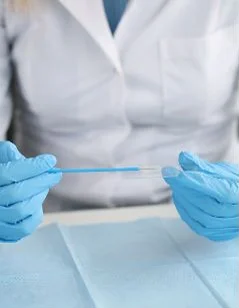Polycystic ovary syndrome, commonly known as PCOS, is a prevalent hormonal disorder affecting females during their reproductive years. It is characterized by multiple cysts on the ovaries and often results in irregular or infrequent menstrual periods. PCOS affects a large number of women worldwide.
PCOS patients often have elevated levels of male hormones, known as androgens. This hormonal imbalance can lead to the formation of small fluid-filled sacs called follicles on the ovaries, which can prevent regular ovulation.
The exact cause of PCOS remains unknown. Early diagnosis is crucial in order to prevent potential long-term complications. Timely detection of PCOS can help patients mitigate their risk of developing type 2 diabetes and cardiovascular issues.
Primary Causes of PCOS
The exact cause of PCOS is still unknown, but several factors are thought to play a prominent role. These include:
- Low-Grade Inflammation: Women with PCOS have been found to experience a specific type of inflammation, with reduced production of white blood cells to combat infection.
- Increased Insulin: Insulin helps regulate blood sugar levels, but in PCOS patients, there is often an overproduction of insulin, leading to insulin resistance and increased androgen production, which can disrupt ovulation.
- Excess Androgen: The ovaries in PCOS patients may produce abnormally high levels of androgens, leading to symptoms such as hirsutism and acne.
- Hereditary: Studies have suggested that there may be a genetic component to PCOS, with a specific type of gene being associated with the condition.
Symptoms of PCOS
The symptoms and signs of PCOS can vary among females and may appear during their initial menstrual cycle or later in life due to weight gain. PCOS can be diagnosed by considering the following symptoms:
- Irregular/Abnormal Periods: Prolonged or irregular menstrual cycles are one of the primary indicators of PCOS. For instance, a PCOS patient is more likely to experience periods less than nine times a year, with heavy and abnormal bleeding.
- Polycystic Ovaries: The presence of small fluid-filled sacs surrounding the egg can cause the ovaries to function abnormally, leading to PCOS.
- Elevated Male Hormone Levels: Increased production of androgen can lead to excessive facial and body hair growth, as well as male-pattern baldness in women.
How is PCOS Diagnosed?
If you experience any of these symptoms, it is advisable to consult a healthcare professional. They will ask about your medical history and the symptoms you are experiencing and recommend the necessary checkups.
During the checkup, healthcare professionals examine the pelvic organs to evaluate the health of the reproductive system. Patients undergo tests to diagnose the cause of their symptoms, including:
- Blood Test: The test helps detect high levels of androgens and other hormones, blood sugar levels, and triglyceride and cholesterol levels.
- Ultrasound: This test uses sound waves to create images of organs, tissues, and blood vessels. It measures the size of ovaries and detects cysts. Doctors also examine the thickness of the endometrium lining of the uterus using this test.
How is PCOS Treated?
Different treatment methods are used for PCOS based on factors such as age, severity, and overall health. Treatment options can provide accurate information about future pregnancy possibilities. If planning a pregnancy, the following treatments are suggested by experts:
- Change in Diet and Exercise
Physical activity and a healthy diet play a vital role in combating PCOS. This approach can help women lose weight, reduce symptoms, and lead a healthy life. Additionally, these changes can help the body use insulin more efficiently and ovulate while lowering blood glucose levels.
- Medications to Induce Ovulation
Doctors might prescribe medications to help ovaries release eggs normally. These medications have certain risks but can be a great solution for those facing infertility. They can increase the chance of giving birth to twins or more but can also cause ovarian hyperstimulation, leading to abdominal bloating and pelvic pain.
The Conclusion
If you're experiencing irregular periods, difficulty getting pregnant, excessive hair growth, or acne, it could be a sign of PCOS. It's important to talk to your doctor and get it addressed as soon as possible. With early diagnosis, it's possible to prevent and manage this health condition.








%20(1).png)
.png)
%20(1).png)


%20(1).png)




%201.png)
